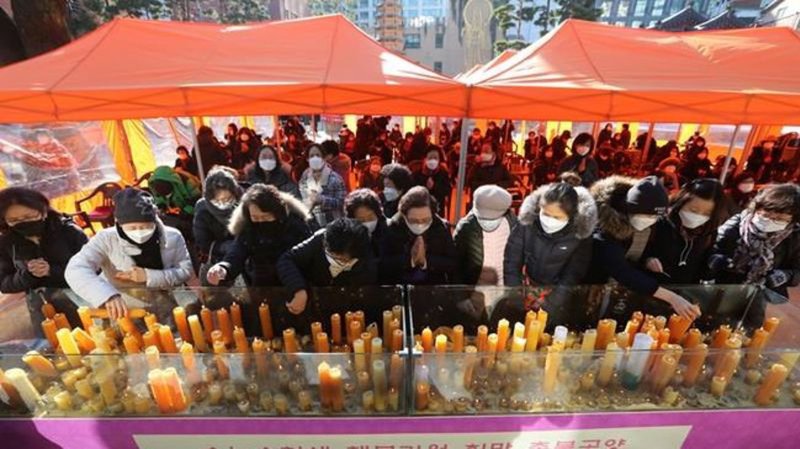
S. Koreans take college entrance exam amid viral resurgence
SEOUL, Korea, Republic Of — Hundreds of thousands of masked students in South Korea, including 35 confirmed COVID-19 patients, took the highly competitive university entrance exam Thursday despite a viral resurgence that forced authorities to toughen social distancing rules.
About 493,430 students were taking the one-day exam at about 1,380 sites across the nation, including hospitals and other medical facilities where the 35 virus patients and hundreds of other test-takers in self-quarantine sat separately from others, according to the Education Ministry.
The annual exam, called “suneung,” or the College Scholastic Ability Test, is crucial for many students in the education-obsessed country, where job prospects, social standing and even who you marry can often depend on which university you graduate from.
Defence and land ministries said they temporarily banned military exercises and stopped air traffic to reduce noise during English-language listening parts of Thursday’s exam, as they did in past years. Government offices and many private companies asked their employees to come in late, and the country’s stock market delayed its opening to clear roads for test-takers.


